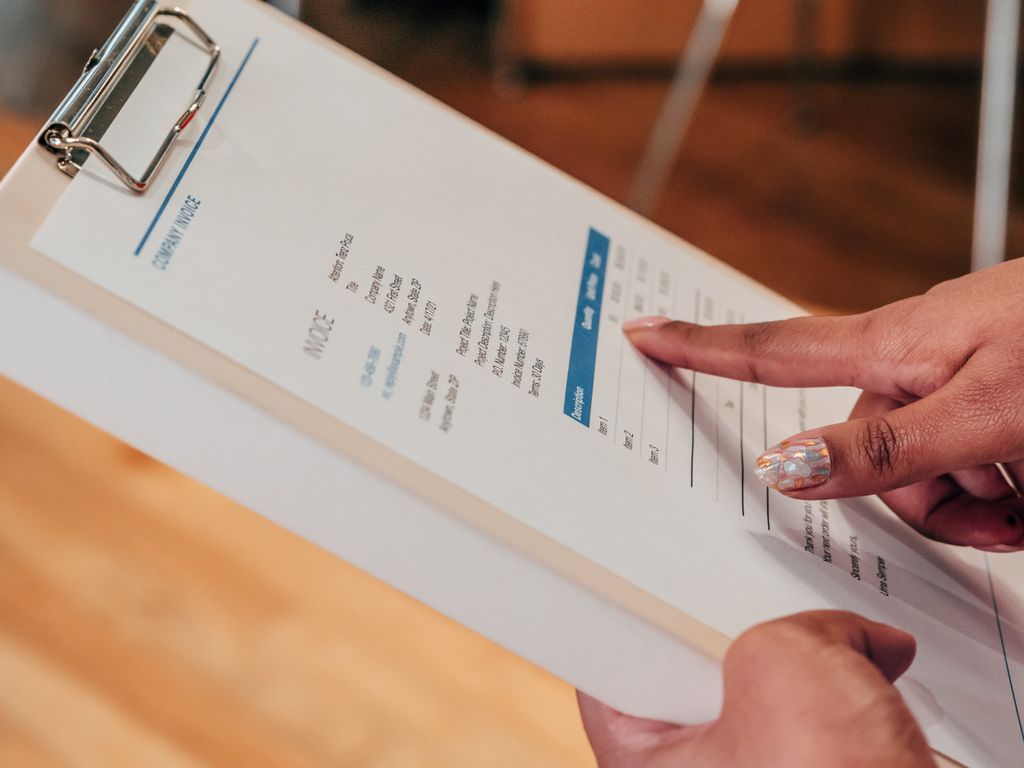Managing delinquent accounts in the nail care product sales industry is crucial for maintaining a healthy cash flow and ensuring business sustainability. In this article, we will explore strategies for identifying delinquent accounts, implementing effective recovery methods, and navigating legal considerations in the collections process.
Key Takeaways
- Regularly review payment histories to identify potential delinquent accounts early on.
- Maintain clear and effective communication with clients to address payment issues promptly.
- Implement structured payment plans to facilitate account recovery and maintain customer relationships.
- Negotiate settlements with delinquent clients to resolve outstanding debts and avoid prolonged collection efforts.
- Understand debt collection laws to ensure compliance and mitigate legal risks when pursuing delinquent accounts.
Identifying Delinquent Accounts
Reviewing Payment Histories
The first step in managing delinquent accounts is to review payment histories meticulously. This process involves analyzing past invoices and payment patterns to identify any red flags or trends of late payments.
Timeliness and consistency of payments are critical indicators of a client’s financial health. A bullet-point list can help nail care product sellers to quickly assess the status of an account:
- Check for payments that are consistently late
- Look for partial payments or patterns of underpayment
- Note any sudden changes in payment behavior
By establishing a clear picture of payment habits, businesses can proactively address issues before they escalate into larger financial disputes.
Assessing Communication with Clients
Effective communication is the lifeblood of client relationships. When accounts become delinquent, assessing the quality and frequency of interactions can provide insights into the situation. Regular touchpoints may reveal payment obstacles or misunderstandings that can be swiftly addressed.
Responsiveness is a key indicator of a client’s willingness to resolve outstanding debts. A history of ignored emails or missed calls can signal deeper issues. Conversely, open dialogue suggests a path to amicable solutions.
- Evaluate the tone of communications
- Track response times
- Note promises made and kept
Proactive communication strategies can prevent accounts from becoming delinquent. Early intervention is crucial in maintaining healthy client relationships and securing payments.
Strategies for Account Recovery
Implementing Payment Plans
Offering payment plans can be a lifeline for both the business and the client. Flexible arrangements allow customers to clear their debts in a manner that’s manageable for their financial situation. This approach not only aids in account recovery but also helps maintain positive client relationships.
- Assess the client’s ability to pay.
- Determine a realistic payment schedule.
- Clearly communicate the terms and conditions.
- Monitor the plan’s progress and make adjustments as needed.
Ensuring that payment plans are fair and feasible is crucial for their success. Regular follow-ups and transparency can prevent further delinquency and foster trust.
Negotiating Settlements
When sales of nail care products hit a snag with delinquent accounts, negotiating settlements can be a savvy move. Strike a balance between recouping losses and maintaining customer relationships. Offer a compromise that incentivizes prompt payment while acknowledging the customer’s situation.
- Assess the account’s value
- Determine a minimum acceptable settlement
- Propose a mutually beneficial agreement
Settlements are not losses but strategic recoveries. They preserve future business opportunities while stabilizing cash flow.
Remember, documentation is key. Ensure all settlement agreements are clearly outlined and signed by both parties. This protects your business and provides a clear path to resolution.
Legal Considerations and Collections
Understanding Debt Collection Laws
Navigating the legal landscape is crucial when dealing with delinquent accounts. Know your rights and limitations as a creditor to ensure compliance with federal and state regulations. The Fair Debt Collection Practices Act (FDCPA) governs how debts may be collected, protecting consumers from abusive practices.
Documentation is key in debt collection. Maintain detailed records of all communications and transactions. This will support your case should legal action become necessary.
- Familiarize yourself with state laws, as they can vary significantly.
- Understand the statute of limitations on debt collection in your jurisdiction.
- Be aware of the legal distinction between contacting a debtor and harassment.
Always proceed with empathy and professionalism. A respectful approach can preserve client relationships and potentially recover funds without legal intervention.
Engaging Collection Agencies
When internal efforts fail, engaging collection agencies can be a decisive step. Ensure they operate within legal bounds to maintain your reputation.
- Research agency track records
- Verify their adherence to the Fair Debt Collection Practices Act (FDCPA)
- Discuss clear terms and conditions
Agencies should act as an extension of your business, preserving customer relationships while recovering funds.
Remember, collection agencies typically charge a percentage of the collected debt. This fee varies, so consider the cost-benefit ratio carefully.
Frequently Asked Questions
How can I identify a delinquent account?
You can identify a delinquent account by reviewing the payment history and assessing communication with clients.
What are some effective strategies for recovering delinquent accounts?
Effective strategies for account recovery include implementing payment plans and negotiating settlements with clients.
What legal considerations should I keep in mind when dealing with delinquent accounts?
It is important to understand debt collection laws and consider engaging collection agencies for legal collections.
How can I review the payment history of a delinquent account?
You can review the payment history by checking past invoices, transaction records, and communication logs with the client.
What are the benefits of implementing payment plans for delinquent accounts?
Implementing payment plans can help in creating a structured repayment schedule and improving the chances of account recovery.
When should I consider negotiating settlements with delinquent account holders?
Negotiating settlements can be considered when clients are unable to pay the full amount and are willing to reach a mutually agreed-upon settlement for the outstanding balance.





